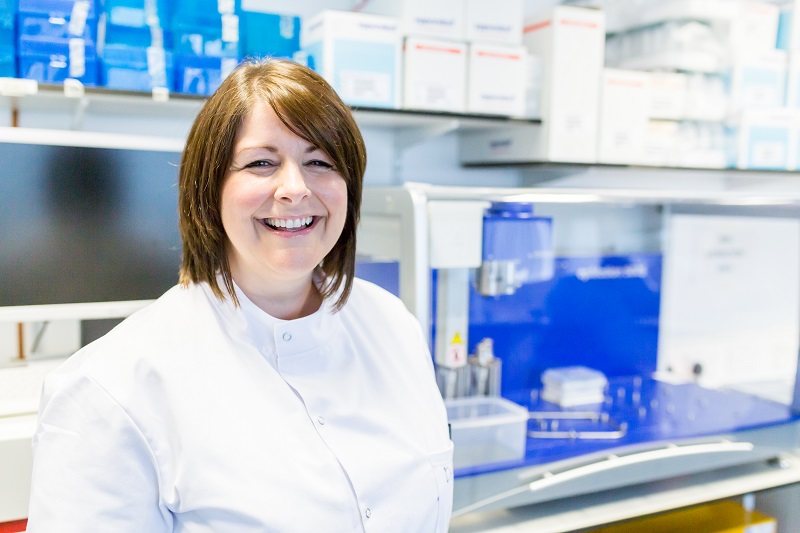
Dr Deirdre Gilpin
HALO - INVESTIGATING INFECTION IN CHRONIC LUNG DISEASE
Respiratory infection in chronic lung diseases such as COPD, CF and bronchiectasis represent major, and often underestimated, healthcare challenges.
Understanding the composition and function of lung bacteria in the pathogenesis of chronic disease will help to alleviate or cure chronic lung disease and, in the face of increasing resistance rates, help to use antibiotic reserves more wisely.
The Halo research group, led by Dr Deirdre Gilpin, is a multidisciplinary research group, comprising pharmacists, scientists, and clinicians with a clear translational focus. The group’s overarching aim is to develop laboratory findings into new clinical and therapeutic approaches. Deirdre’s group have been at the forefront of identifying the wide range of bacteria in the lungs of both healthy people and those with chronic respiratory conditions, using a range of traditional culture and cutting edge next generation sequencing technologies. Increasingly, their work is determining how the lung environment affects the function of these bacteria. Two key areas of research are:
- Chronic MRSA infection in CF: this is associated with declining lung function and increased mortality in people with CF. This project will look for changes in MRSA, from first identification, as it develops into a chronic infection, and relate this to changes in the patient. Understanding how chronic infection is established may help Deirdre and her team identify markers which might indicate transition to chronic infection, and help design treatment strategies which could prevent or subvert its onset. 21 RESEARCH PARTNERS
- The effect of cigarette smoke and electronic cigarette vapour on key pathogens in COPD: It is well known that cigarette smoke has a damaging effect on the lungs, but there is very little known about cigarette smoke or electronic cigarette vapour on lung bacteria. Current research is currently focussing on how cigarette exposure might affect bacterial virulence, influence antibiotic resistance and development of chronic infection.
Deirdre’s research group has also developed a range of DNA and RNA based methodologies which allow us to characterise bacteria at a genetic level. These include DNA fingerprinting techniques to help determine similarities between bacteria from a range of sources, and also rapid identification techniques. This has formed a key component of a new €50 million Europe-wide project to develop new drugs that to improve the lives of people with CF and bronchiectasis (inhaled Antibiotics in Bronchiectasis and Cystic Fibrosis). Together with her industrial (Novartis and Basiliea) and academic partners across Europe, Deirdre’s team will pioneer the use of these novel molecular tools in clinical studies.
Research Partners
- Randox Laboratories Ltd
- Stragen Pharma SA
- Basiliea Pharmaceutics Ltd
- Novartis Pharma AG
- US Cystic Fibrosis Foundation
- European Commission: Innovative Medicines Initiative
- University of North Carolina at Chapel Hill, North Carolina
- University of Washington, Seattle
- University of Alabama
- University of Marseille
- Cardiff University
- Royal College of Surgeons in Ireland
- Stragen Pharma SA


